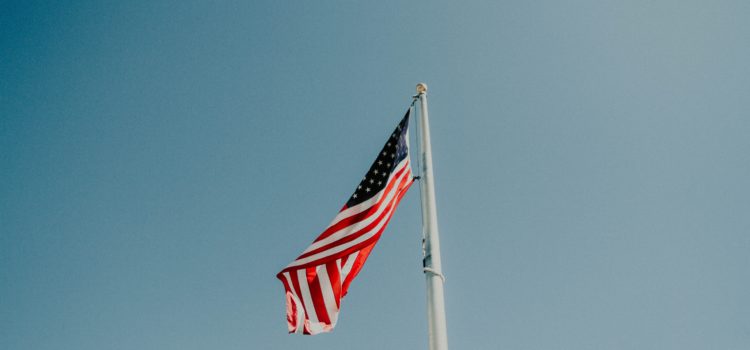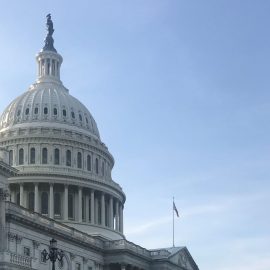

This article is an excerpt from the Shortform summary of "Permanent Record" by Edward Snowden. Shortform has the world's best summaries of books you should be reading.
Like this article? Sign up for a free trial here .
How did Edward Snowden end up working at the NSA? Did he start as an employee or contractor? Would the NSA, Edward Snowden, and mass surveillance be the same if Ed had a different career trajectory?
At the NSA, Edward Snowden started as a contractor while employed by the University of Maryland. His work in each role at the NSA and CIA gave him knowledge that was later used to blow the whistle on mass surveillance.
Read more about the NSA, Edward Snowden, and issues with mass surveillance.
NSA, Edward Snowden, and the University of Maryland
When Snowden decided to pursue public service, he didn’t immediately work for the government. While helping the NSA, Snowden was actually working for the state of Maryland at the University of Maryland. The project was to help the NSA open the Center for Advanced Study of Language (CASL). CASL was trying to use computers to understand foreign languages. Though this was important to the NSA, Snowden worked in a role that was effectively a security guard.
Ed was looking for a better job. He found out that it was hard to directly work for the government. Instead, it was easier to be a government contractor with an outside company. Outsiders were actually doing national security work for the NSA. Edward Snowden found it frightening that they could do anything systems-level because it gave contractors access to all sorts of sensitive information. Contracted technologists would also work at secure facilities such as NSA headquarters.
From the CIA to the NSA: Edward Snowden as a Government Contractor
Ed’s first contracting job was with COMSO. He was part of the CIA’s Directorate of Support and his job was to manage CIA server architecture. He would have access to all the systems that stored and accessed intelligence. He also had access to COMSEC (communications security), which involves the codes that are used to protect all CIA information. These codes are considered some of the most secret of the CIA’s secrets. At the time, it didn’t occur to Ed that the breadth of his access might be indicative of a problem.
After working directly for the US government in Geneva, Ed took a new job in Japan in 2009. He went back to being a contractor (for Perot Systems, which was acquired by Dell) and worked for the NSA. Initially, his job was to connect the CIA and NSA’s infrastructure so they could share data.
The President’s Surveillance Program and the NSA: Edward Snowden Becomes Suspicious
NSA is permitted to wiretap phone and Internet communication between the US and abroad without a warrant from the Foreign Intelligence Surveillance Court (FISC). The justification was the threat of terror. This was put in place after 9/11 by George Bush.
When Ed was in Tokyo, the unclassified report on the President’s Surveillance Program (PSP) was released to the public. The PSP, created in response to 9/11, had allowed the NSA to wiretap without a warrant and had allegedly expired in 2007. Ed thought the report had holes.
Ed read a draft of the classified report and discovered that the US government was in fact conducting mass surveillance. Warrantless data collection had continued past the PSP’s alleged expiry in 2007. Ed struggled with everything he read in the report as he realized the implications.
At the NSA, Edward Snowden had seen the agency’s goal was to keep intelligence forever and he’d even helped build a system that would help them store it.
The Fourth Amendment and the NSA
The Fourth Amendment protects “the right of the people to be secure in their persons, houses, papers and effects.” Computers didn’t exist at the time of the writing, but the essence of the amendment is that if law enforcement wants to search you, your home, or your stuff, they need to prove there’s a good reason to do so. Additionally, the reason must be specific—law enforcement thinks you’ve committed a specific crime. The warrant will specify the scope of the search and how long anyone has permission to search.
The NSA had to carefully interpret the Fourth Amendment to justify mass surveillance. According to the NSA, modern technology couldn’t count as “papers” or “effects,” and data couldn’t be considered personal property. For example, since you made a phone call, you’d already “shared” data with your phone company, so you no longer had any right to privacy.

———End of Preview———
Like what you just read? Read the rest of the world's best summary of Edward Snowden's "Permanent Record" at Shortform .
Here's what you'll find in our full Permanent Record summary :
- What Ed Snowden discovered that caused him to completely lose faith in the government
- How Snowden led the bombshell reports of US mass surveillance
- How Snowden is coping with his treatment as both patriot and traitor






